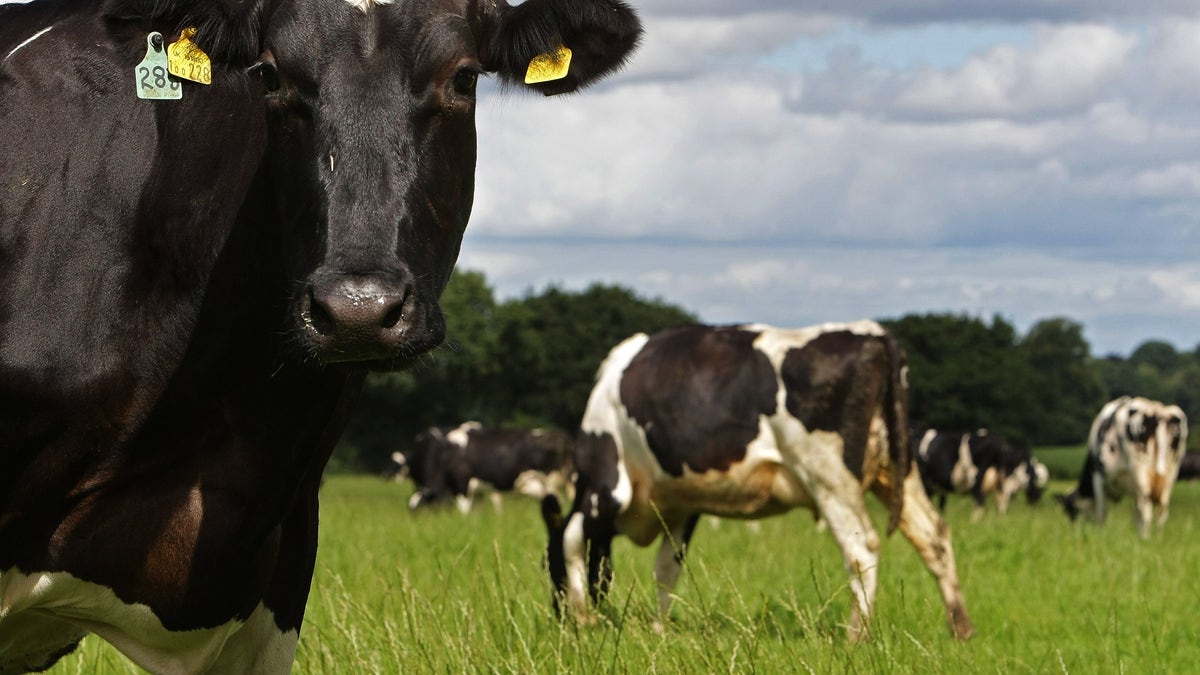
KNUTSFORD, UNITED KINGDOM - AUGUST 07: Dairy cows graze in a field in the Cheshire countryside on August 7, 2007 in Knutsford, England. In a tense week the British farming community continue to work through the Foot and Mouth disease crisis. Further test results are due today that will determine the source of the outbreak. It has also been confirmed today that a second outbreak on a Surrey farm is gripped by the disease. (Photo by Christopher Furlong/Getty Images) (2007 Getty Images)
The Environmental Protection Agency is stepping up its testing of milk after traces of radioactive iodine was found in milk samples taken in California and Washington state.
The EPA normally tests milk and vegetables every three months but since the March 11 tsunami that crippled Japan’s nuclear power plant, the agency has been frequently screening samples from milk producers.
A small amount of radioactive iodine was found in a March 25 milk sample from Spokane, Wash. The amount detected was 5,000 times below the federal recommended limit for exposure.
In separate testing, the California Department of Public Health found a similar trace amount Monday at a dairy in San Luis Obispo County, where the Diablo Canyon nuclear power plant is located.
"It is safe to drink milk. It is safe to eat dairy products," county Health Officer Penny Borenstein said at a news conference Thursday.
The Food and Drug Administration, which oversees the safety of the nation's food supply, said that so far it has not found radiation in any other foods.
To the north, health authorities in British Columbia said radioactive iodine levels recently found in rainwater and seaweed do not pose a health threat.
The United States had already banned imports of dairy and produce from the region of Japan where the crippled plant is located. Other foods imported from Japan, including seafood, are still being sold but are screened first for radiation.
"People shouldn't be afraid to continue eating dairy products, vegetables, fish and other nutritious foods," said Christine Bruhn, who studies food safety at UC Davis.
Based on reporting by The Associated Press.
Follow us on twitter.com/foxnewslatino
Like us at facebook.com/foxnewslatino
